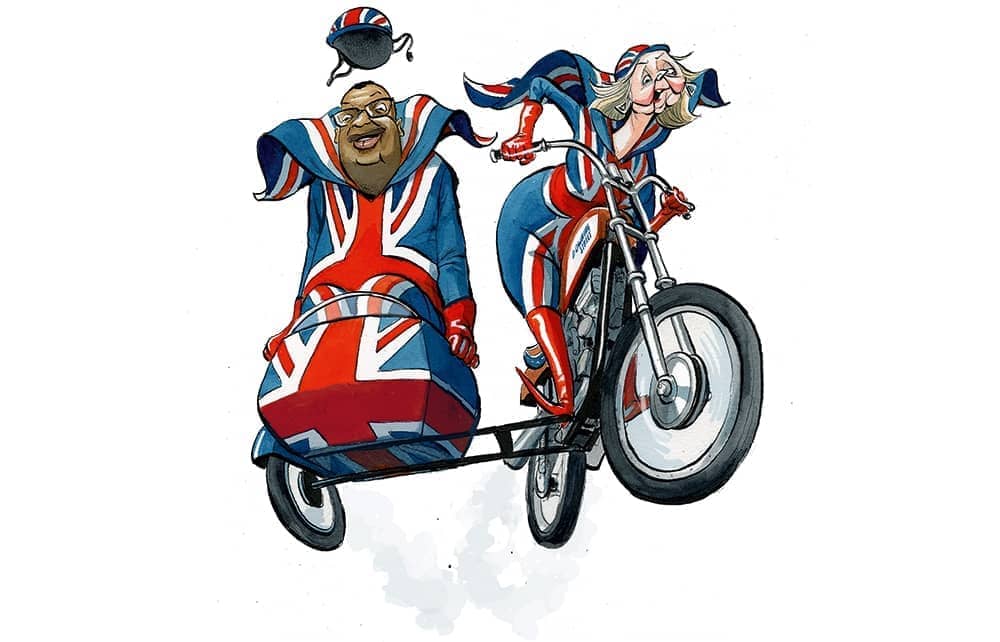It was only a few weeks ago that Liz Truss was talking about holding an ‘emergency’ fiscal event towards the end of September, mainly to address rising energy bills and how the government would support people through the winter. This targeted approach helped to justify the speed at which her new government would announce some major policy, and even more importantly was used to justify not commissioning analysis from the Office for Budget Responsibility to go alongside it. Energy bills were too time sensitive for the government to wait for the OBR to run all the numbers and produce forecasts, Team Truss’s argument went. The independent assessment of her plans (which must be run at least twice a fiscal year) would come later in the autumn, next to a comprehensive Budget.
Depending on who you’d ask, this was smart – or short-term – politics. The Truss government is set to pledge a lot of money to the new Energy Price Guarantee – which caps the average household energy bill around £2,500 – and conservative estimates have put at well over £100 billion (though movements in the wholesale gas market make it very hard to be at all precise about this).
It’s been expected for weeks, too, that the statement would also reverse the National Insurance rise to pay for health and social care and undo the corporation tax hikes planned for next year: more of a rolling back of Boris Johnson’s recent tax hikes than a shake-up or overhaul of the tax code. All this is expected to leave a big hole in the public finances, which Truss has suggested she’s happy to borrow. The numbers will be crunched eventually, but announcing all this without a formal OBR assessment gives the government a little bit of time to make its pro-growth case before the critics come in.
But in the past few hours, a fair number of hints have been dropped that this is no longer the targeted announcement Truss originally planned. Over in Manhattan, where Truss has travelled for her first international trip as Prime Minister to the UN General Assembly, she suggested to the press that more changes to the tax code were under consideration. ‘We have to look at our tax rates,’ she said, while doubling down on her ambition to achieve a higher growth rate as her ‘number one’ priority.
Her comments, while delivered with a sense of urgency, still suggest an open timeline for implementation. Cue the Treasury, which almost simultaneously reveals a poster, not for an emergency fiscal event, but for ‘a Growth Plan’ to be announced by Chancellor Kwasi Kwarteng this Friday.
It is, on the face of it, a rather large proclamation: that the details of the new government’s ‘number one’ priority will be delivered not in an official Budget later this year, but in three days’ time. This could well be an oversell: Kwarteng may decide to give hints about what changes could come later down the line instead. But if more announcements were to be brought forward, what would they be? There is speculation circulating that Truss could bring forward the planned income tax cut for 2024, which will see the basic rate fall from 20p to 19p. There is also talk that Truss might pick up on a scrapped idea from Boris Johnson’s leadership campaign in 2019 to change the tax threshold for higher earners (it was Truss, Johnson’s first cabinet backer, who was pushing this idea at the time), in a bid to reverse fiscal drag (when people are pushed into higher tax brackets by inflation or wages). So far, political pressure has not swayed Truss from her belief that taxes should come down for high earners as well as low earners, telling press in New York that ‘not every measure will be popular’.
The more the government announces on Friday, the more time it has to get ahead of critical headlines about what the policies will achieve, once think tanks like the Institute for Fiscal Studies run their own numbers and make their own predictions. But the bigger the announcements, the bigger the risks too. Truss has dictated on what terms her premiership will be tested: whether the changes she makes kickstart economic growth. That make’s today’s billing of ‘the Growth Plan’ particularly punchy: if her government lays out a plan this week that is rushed or not fully formed, the new PM will be the one to answer for it.







Comments